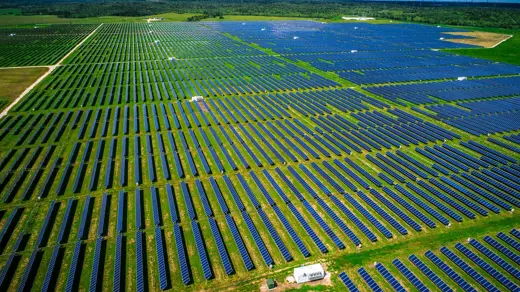With COP26 only just concluded, sustainability and the future of our planet are at the forefront of our minds. Never has it been more essential to come together, both as individuals and corporations, to tackle climate change – the biggest threat humanity faces.
Tackling climate change is essential to all of us, but it is a particularly pressing issue for women and girls, who, according to the United Nations, make up 80% of those displaced by climate-related disasters and changes.
The reason the impact of climate change rests so heavily on women is because they are typically the primary caregivers, especially in developing nations. In the least developed countries, women are typically relied upon by their families to forage the land for food and collect water for cooking and cleaning. A report by the European Parliament found women are responsible for 70% of water chores and management worldwide. As temperatures rise and resources become scarcer, women and girls are forced to travel for longer distances. The number of women affected means the equality issue is far too big to ignore.
In addition, climate change disproportionately affects those who have less. With women making up 70% of the 1.3 billion people living in poverty, once again they are more likely to feel the impacts of climate change.
Finding a voice
Despite these burdensome challenges, women are underrepresented when it comes to developing climate policies. Speaking at the COP26 conference earlier this month, Sweden’s minister for international development cooperation Per Olsson Fridh said: “Women are not the polluters of this world, yet they carry the consequences of climate change on their shoulders. Without a gender perspective, we miss out on invaluable knowledge needed for a sustainable green transition. A feminist approach is simply the only smart thing to do.”
Just 15% of the COP26 leadership team were women, which is simply not good enough. The climate crisis cannot be stopped without empowering women, and we cannot strive for a sustainable future for our planet if the voices of girls and women are not heard.
Change begins at home. While extensive change cannot happen overnight, it is encouraging to see closer attention being paid to gender equality in climate action. The UK government has pledged up to £45m to help empower local communities and grassroots women’s groups in Asia Pacific to challenge gender inequalities and adapt to the impacts of climate change. It has also pledged £120m in funding to prevent pollution, protect biodiversity, strengthen renewable energy and better manage waste in Bangladesh, while also supporting women’s leadership, access to finance, education and skills.
Companies too must be drivers of change. Programmes such as the five-year Hampton-Alexander Review, which sought to achieve greater women’s representation at board level and in senior executive positions at the UK’s largest firms, have made some progress. Currently, 36.2% of board positions in the FTSE 100 are held by women. However, with investors demanding change and diversity of thought becoming increasingly appreciated, this alone does not go far enough.
Women need to be supported to thrive in the workplace, and girls must have access to education and opportunities. We believe in companies that invest in projects that specifically support the development of women. At Apex Group, our ESG advisory service offers high quality, independent insight into how businesses can facilitate these positive changes, as well as identify any gaps in their ESG strategy.






